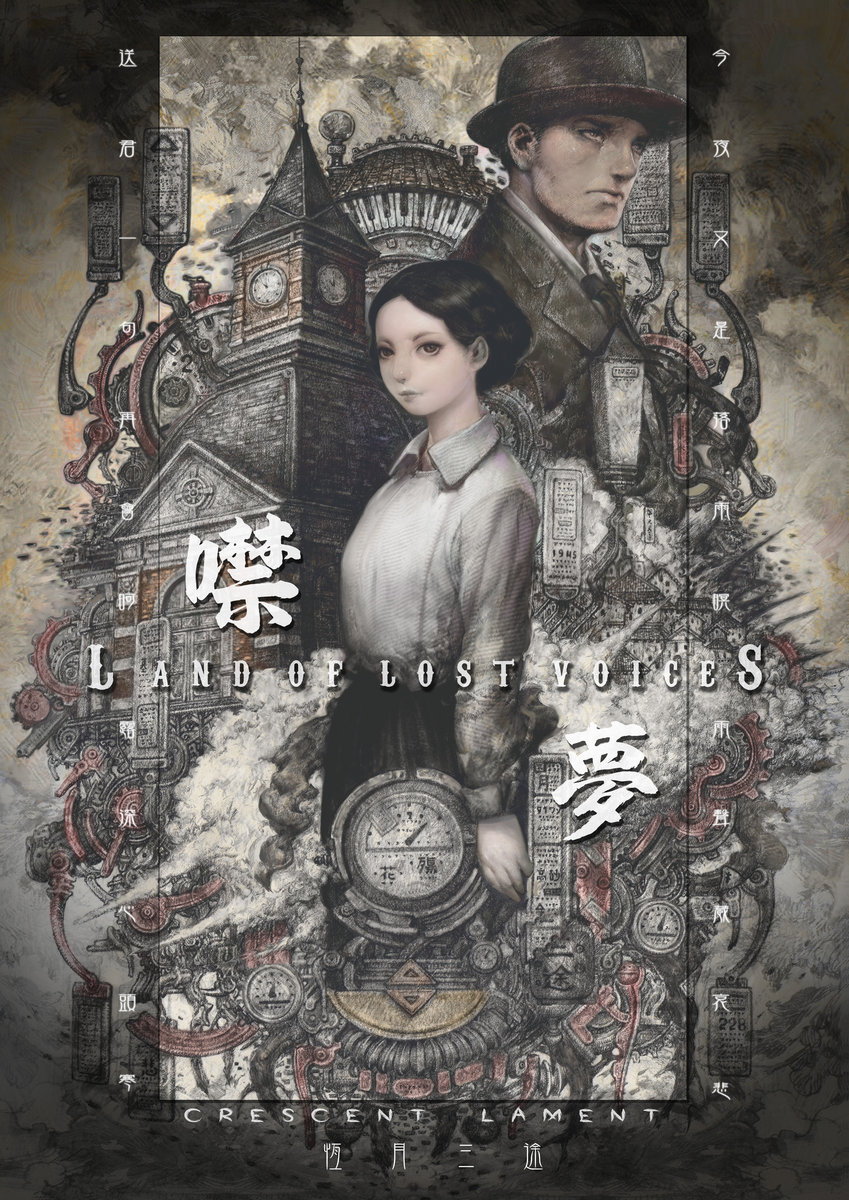Album of the Week 12-2023: Kinniku Shōjo Tai – Gekkō Chū

Kinniku Shōjo Tai has a fairly sizeable discography of crazy, eclectic music. Because of that, it is difficult to pick a favorite or one to recommend to someone curious to begin with. If I was forced to pick one, however, it would be ‘Gekkō Chū’, the third release with what is now considered their classic line-up, including guitarists Fumihiko Kitsutaka and Toshiaki Honjō. It hops genres slightly less than the average Kinniku Shōjo Tai album, being primarily an early nineties alternative hardrock album with a thick, metallic bottom end. But it is still strange enough to be characteristic for the band.
Descriptions cannot really do Kinniku Shōjo Tai’s sound justice. Their earliest influences are punk, progressive rock and the first wave of Japanese electronic rock bands. Line-up changes were relevant to the band’s sound, however. Honjō brought a funky alternative rock sound to the band – think early Red Hot Chili Peppers at a time when few Japanese people had even heard of them – and Kitsutaka’s background is in neoclassical hardrock, power metal and Queen-like bombast. For some reason, throwing all those elements together in a seemingly random, yet surprisingly well thought-out fashion has worked wonders for Kinniku Shōjo Tai.
The songwriting on ‘Gekkō Chū’ is dominated by singer Kenji Ōtsuki, him being listed as the main songwriter for the first six of the album’s ten songs. Since every songwriter in Kinniku Shōjo Tai brings something different to the table, that sounds like it might be too much of the same thing. However, this is Ōtsuki finest hour as a songwriter. From the metallic crunch of opening track ‘Kazagurumua Otoko Ruriwo’ to the eerie, largely acoustic semi-ballad ‘Decoy to Crater’ and from the theatrical ‘Yoru Aruku Planetarium Ningen’ – featuring fantastic guest vocals bij the late Aki Kubota – to the simple, but brutally effective hardrock of ‘Shōnen, Guriguri Megane wo Hirou’: it all works surpringly well.
Other band members contributed to the second half of the album. With Kitsutaka being one of my favorite guitarists ever, I fully admit to being biased, but his speed metal monster ‘Iwan no Baka’ is one of the greatest songs Kinniku Shōjo Tai ever recorded. From the neoclassical brilliance in the intro to the fantastic borderline thrash metal riff of the verses and a particularly wild solo section, everything just works. His other contribution is the classy ballad ‘Shōjo no Ōkoku’, which wears Kitsutaka’s Brian May influences on its sleeve. And you can always count on bassist Yūichirō Uchida to come up with something dark and weird, as evidenced by the lengthy instrumental outro ‘Shōjo Ōkoku no Hōkai’.
While Kinniku Shōjo Tai has albums with higher peaks – with the notable exception of ‘Iwan no Baka’ being a top three song for the band, as far as I’m concerned – ‘Gekkō Chū’ is the most consistent listening experience in the band’s discography. Especially for a western audience that may not be accustomed to their genre-hopping, which is fairly wild even by J-rock standards. There is literally not a single song I would skip. And while I think it would have benefited from having at least one Honjō composition, it may be my favorite Kinniku Shōjo Tai album to date.
Recommended tracks: ‘Iwan no Baka’, ‘Yoru Aruku Planetarium Ningen’, ‘Decoy to Crater’


